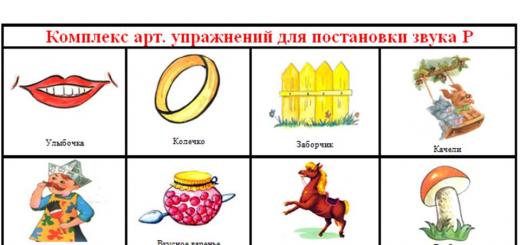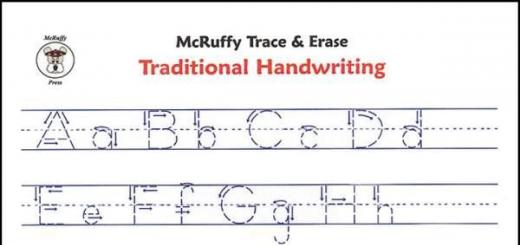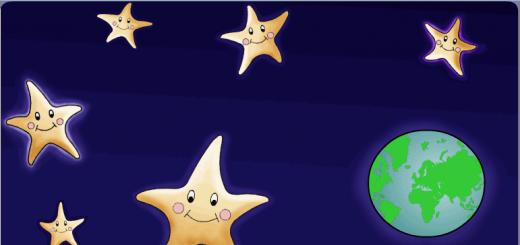V. Konoplev
Young communist (M.). - 1984. - 2. - S. 66-73.
Per. in email view Yu. Zubakin, 2006
Vladimir Vasilyevich Konoplev was born in 1924. Graduated from the Department of Bibliography of the Leningrad State Institute of Culture named after N. K. Krupskaya. Chief Librarian of the Department of Funds and Services of the State Public Library named after M.E. Saltykov-Shchedrin. Author of a number of bibliographic manuals for youth, works on library science. Published in the journals "Man and Law", "Teaching History at School", "Soviet Bibliography", "Literature at School", the almanac "Friendship" and other publications. This is the first time he has appeared in our magazine.
I have been working in the library for over thirty years. I work with books and with people who read these books. They bend over the taken volumes, I watch them and think. I am trying to understand what and how this or that book affects a young person. Why do they take one like hot cakes, and keep the other untouched.
There are categories of books, regardless of the skill and talent of their authors, that are popular with young people. This is a detective, adventure literature and fantastic in demand, especially in recent years.
According to opinion polls, every third schoolchild, fifth young specialist, seventh student and eighth young worker not only regularly reads science fiction, but calls it his favorite genre.
What is behind this? After all, science fiction is not just a kind of adventure literature, these are special books, operating with situations that not only require mental effort, unraveling, but do not exist in life. Taken from reality, recreated by the imagination of the writer, predicted. Sometimes just fabulous.
Is this the desire of young people who read science fiction to escape from real life into a world of illusions, as some opponents of this hobby believe?
I'm sure the reason is different. I am convinced of this by my own considerable experience of working with young science fiction lovers who visit the youthful reading room of the State Public Library named after M.E. Saltykov-Shchedrin, and the analysis of questionnaires, hundreds of letters that came from admirers of this genre to the Leningrad House of Children's Books and in " Komsomolskaya Pravda” (these letters were handed over to us by the editors). When, in addition to everything, I collected various opinions about the readers of science fiction and about science fiction itself, expressed in recent years in the press, once again looked through the results of sociological surveys, I had a desire to write these notes.
To write in order, firstly, to divert undeserved suspicions from young lovers of fantastic works, and secondly, to convince their educators of something, who sometimes meet this craze with hostility.
IS FANTASTIC HARMFUL?
So, some parents and teachers are convinced that fantasy is bad, it is harmful for their children, because it distracts them from more serious things, and not only takes time, but leads thoughts in a completely different direction.
Here writes to us from Kiev Vladimir G., a graduate of the school. He talks about how his love of science fiction helped him master Polish, English and French. But he recalls that at school, when one day the conversation turned to science fiction and he began to justify his hobby, the history teacher, as they say, knocked over a tub of cold water on him: “Fantastic! This is a pointless waste of time! It confuses thoughts and pollutes memory…” “I go to the library and ask for fiction,” says Valentin T., a Leningrad reader, “Fiction? Well, well ... - condescendingly replies the librarian. “Don’t you want to read anything serious?” - “Father,” Victor I. complains, “when he sees a science fiction novel from me, he says: “Do you read fairy tales again? An adult, already 16 years old, but you are fond of fables.
You can understand these reproaches, it seems to other educators that the time spent on reading “fables” was wasted, the very time that should be spent on mastering something more serious. But where did they get the idea that science fiction is not a serious thing?
No, many do not mind, maybe serious, but not the serious one that a teenager needs. In youth, at the time of formation, a person indiscriminately and greedily absorbs all impressions, and fantasy is actively "connected" to the development, formation of his value orientations, aesthetic and social views, worldview and worldview. That is, it actively forms a developing personality. But will science fiction, which uses fictitious situations and characters, teach an unintelligible teenager what classical literature, realistic, according to the program, should teach him?
There is another common attitude towards reading "fables" by teenagers, condescending, sort of like chickenpox - they say, over time it will pass by itself. But after all, it doesn’t pass so easily, many young readers carry this passion through the years, and those who have “passed” are far from always taken for something else, more valuable or at least equal.
Is it worth it to disassociate or dismiss fiction? Couldn't it turn out to be a very valuable educational tool, that "key" to the soul of a teenager, which educators sometimes look in vain for? After all, science fiction is, in a certain sense, also approaches to science: astronomy, physics, mathematics, geology, biology, etc. This is both a primary acquaintance with literary genres, techniques, style, this is the formation of an initial artistic taste, the development of skills for critical assimilation of what has been read and, finally, simply the ability to read thoughtfully.
Yes, at school and at home we traditionally use software literary works for this. Sometimes almost forcibly forcing a teenager to read them. But here we have literature, which he himself willingly reads. No prodding. Why not use it as another and rather powerful means to achieve all the same goals.
The objections sound reasonable: far from every fantastic work is exemplary reading. But is it really that bad? Or maybe, for educational purposes, this is just a very good circumstance, since in this case it becomes possible to clearly show teenagers what distinguishes a genuine, highly artistic work from a weak, mediocre one. Among the programmatic "exemplary" books, there is simply no material "on the contrary", works on the example of which it would be easy to consider the author's failures. And to teach the student to distinguish the bad from the good, the artistic from the fake. No, I'm not advocating adding science fiction to school programs. It is about the guidance of extracurricular reading. Naturally, in order to build this work purposefully, the teacher, librarian, and parents must clearly understand what possibilities are hidden in the best works of science fiction.
WHAT IS THIS POSSIBILITY?
Modern science fiction is a complex, synthetic form of literature. Its specificity is still the subject of discussion. Fantasy is one of the peculiar genres of realistic art. These days to accuse her of being "frivolous" is absurd; to judge it as a whole by unsuccessful or weak works is no less absurd.
The metaphorical and extraordinary multidimensionality of the artistic idea is the undoubted advantage of this genre. Let's take the famous novel by A. Belyaev "Professor Dowell's Head". By the sheer number of interpretations to which its content lends itself, one can judge from what a huge readership it can find recognition. For the inexperienced reader, this is a typically entertaining story about how "the head of one man was sewn onto the body of another." The reader of a romantic warehouse will think about a noble and naive dreamer who wanted to make the human race happy, but became the victim of an egotistical, treacherous student. The reader looking for a social subtext will also find it here, because it was precisely the thirst for fame and money, the whole atmosphere of the bourgeois lifestyle that pushed Kern to commit the crime of getting his teacher out of the way. Someone will be excited by the purely ethical problems that inevitably arise during this kind of operation, if such an operation turns out to be real in the foreseeable future. The well-known surgeon, academician, who is also a science fiction writer N. Amosov draws attention to just this side of the matter: “If technical difficulties are overcome in animal experiments, then a dying person with high intelligence can be made such an offer (about a transplant. - V.K. ). I don’t see any blasphemy in this, and if they offered me, I would agree.” And critic M. Petrovsky believes that A. Belyaev’s novel is a philosophical dispute with Descartes, whose famous formula “I think - therefore I exist” no longer corresponds to current ideas about the essence of life: “The professor’s head, thinking despite the absence of Dowell’s human personality, was thrown on the scales as a paradoxical anti-Cartesian argument." Not everyone may agree with the statements of a respected critic, but the possibility of such an approach to the novel cannot be denied.
Modern science fiction has up to 20 directions. Here is philosophical, and romantic, and fabulously allegorical, and satirical, etc. fantasy. The traditions of the popularization of science, dating back to Jules Verne, have now receded into the background: science fiction is increasingly focused on a serious study of the social, philosophical and other problems of the modern, more complex world.
And finally, we absolutely in vain underestimate the ideological potential that is accumulated in the works of Russian science fiction. Reading and thinking about the man of the future, about his life, victories and defeats, readers unobtrusively, but certainly come to an understanding of the essence, principles and foundations of the new society.
An analysis of the ideals and ideas contained in the works of Soviet science fiction and its best foreign examples makes it possible to confidently attribute this type of literature to reading, which gives a lot for the formation of the personality and moral self-awareness of our youth.
Academician P. Rehbinder noted: “... I appreciate science fiction not only and, perhaps, not so much for what it represents today, but for the richest possibilities hidden in it ...”
These opportunities are very quickly felt and appreciated by her young readers and admirers.
It is curious that if in the recent past many teenagers grieved that they were born “too late”, since everything was already discovered and mapped, the poles were mastered, airplanes, radio, television were invented, today, in the early 80s, we see something different. . Now, when the boundaries of knowledge of the world have expanded, when even a fragile child's hand freely sketches on a sheet of drawing paper not just a supersonic liner or a photonic rocket, but the entire solar system, planets of other stars that are waiting for new Przhevalskys and Obruchevs, now schoolchildren are already afraid that were born “too early”, NTR is just taking off, so in 20 years, perhaps, other young people will fly to the stars, and they, the current ones, are unlikely to be lucky.
DISPUTE OF READERS AND NON-READERS
Perhaps the first major act of "civic consciousness" of many young science fiction fans is their resolute defense of their favorite reading in the face of its opponents, their readiness to "cross feathers with them."
“It has long been necessary to repulse the opponents of science fiction,” Volodya S. from Sary-Ozek, Kurgan Region, sums up his long-standing thoughts. “Let them answer: why don’t they want to think about their future?”
“The opponents of science fiction are those who do not see what steps life is moving forward,” writes 15-year-old Lena I. from the Vladimir region. – Have they ever met the morning, dreamed about the future? Probably not".
“People who read and love science fiction,” writes Volodya U. from Ufa, “I want to meet and talk. They are interesting people."
Psychologists note a very important detail when they study the mechanism of formation of many teenage groups and collectives. Their attitude to science fiction is one of the important criteria for evaluating their peers. When choosing friends, the guys very often resort to this “probe”.
“I know peers who don't like science fiction,” explains 15-year-old Zoya O. from Karelia. - But these guys are usually not very developed. You ask them the question: "Why don't you like science fiction?" The answer is usually the same: "It's all wrong." What to talk about with them?
The arguments of the opponents are also very curious. They note in science fiction fans the desire to take on faith and fiercely defend scientifically dubious, “fabulous” and, therefore, harmful ideas. A 10th grade student from Almetyevsk, Ira V., says that one of her classmates, having read science fiction, fanatically believes that ordinary bread can become an explosive under certain conditions. Even the physics teacher, the girl writes, cannot dissuade him in any way ...
Indeed, this happens to teenagers who read fantasy enthusiastically. Lyuba U., a tenth-grader from Pervouralsk, is convinced that the well-known Leonardo da Vinci is not just an Italian artist and scientist, as the whole world knows him, but also an alien from an unknown planet. Mankind is mistaken in considering him as his son. Luba has proof of that. Whole six. She painstakingly sought them out in books and albums with reproductions of the painter's paintings. And the impetus for the birth of her hypothesis was one of the science fiction novels. The girl loves astronomy and dreams of becoming an astrophysicist. In the meantime, I read four reports in different classes about Leonardo.
Fans of science fiction often cite the famous words of Niels Bohr in their defense: “Is this idea incredible enough to be right?” It is precisely the desire of science fiction fans for "crazy" ideas that sometimes causes a violent protest from a certain group of guys. What are these guys?
“Fantastic books are unnecessary books,” writes Nikolai P., a tenth grader from the village of Okintsa in the Moldavian SSR. - Why? They distract from reality, from lessons.” “What can you learn from Martians, who, in fact, do not exist,” asks 16-year-old Lena B. from the Lviv region, “or what good can Professor Dowell’s head say, which, of course, can never live without a body? Why write about stellar worlds, life on other planets, if there are so many fabulously interesting things on our blue planet - Earth?
A letter from 17-year-old Natasha S. from Shatsk is typical. The schoolgirl herself is perplexed: her uncle has a wonderful library, in which there is a lot of science fiction. “Everyone around reads it,” Natasha writes, “they say: start with science fiction, it’s interesting, and then, there will be a hunt, you will read serious books. But A. Tolstoy's "Hyperboloid of Engineer Garin", for example, I have been reading for no less than two months, and I have been tormenting Aelita for the second year and I will not reach the end. I tried to take a non-fiction book - I can’t read beyond the second page: it’s boring.
The study of the reader must begin with the study of the non-reader. For me, a librarian, the “non-reader” will forever remain the saddest figure, the eternal reproach. Because the guys in this category do not just prefer something else to science fiction, they don’t like to read anything at all, and their spiritual world is narrow, unfriendly, sometimes extremely miserable. The "groundedness" of their beliefs, distrust of the dream - is it better to worship the "crazy" ideas of science fiction supporters?
By the way, it is not the opponents, but the supporters of science fiction who subject many of her works to very exacting and competent criticism. They weed out the best books from the chaff. Opponents simply refuse to read, and therefore their argumentation is helpless and unambiguous.
The insignificance and flimsiness of arguments is a typical feature of all non-readers. A curious prejudice is permeated by the opinion of one girl: "Let long, skinny, with pale faces, boys and girls with glasses read science fiction."
The essence of the "non-reader's" arguments does not even come down to the denial of science fiction. They are dictated by others: the unwillingness to develop search, creative principles in oneself, the desire to meet only the smallest - school requirements.
Of course, not science fiction in itself is our goal. The main thing is that the reader should take place, so that a person begins to think. Fantasy is just a means. Let her start with her. And there he chooses to read to his liking. The starting point here is a conscious, critical, thoughtful attitude towards one's own reading.
READERS ARE VERY DIFFERENT
I will try to somehow classify fans of science fiction, in order, perhaps, to facilitate the task of librarians, teachers, and educators who have decided to look for the keys to the entire readership.
According to my observations, it can be divided into three main types. The first is those who read constantly and thoughtfully, who are steadily interested in certain topics and problems and, judging by the forms and questionnaires, unmistakably choose the most valuable works in the ideological and artistic sense from the general stream of fiction.
In short, this is the core, the reader's asset. Among fans of science fiction, they stand at the highest level of reader development. It is these guys that are the model to which you should strive to lead the rest.
Their preferences can be divided into two directions. Some are explicit humanitarians, hence their focus on reading,
Tanya S. lives in Molodogvardeysk, Voroshilovgrad region. She is 16 years old. He is fond of drawing. Submit pen drawing. In the picture, an unknown planet: a girl's face with a bang in a spacesuit, a rocket and a dinosaur staring in amazement at the aliens. Above the surface of the water is the blinding luminary of an alien world.
“Science fiction,” the girl writes, “reveal the great possibilities of man, show the kind and beautiful world of the future. They glorify the power of man over himself and the planet, glorify the beautiful Tomorrow of mankind. But they also warn: there will never be lazy peace and sleepy grace on Earth, people are born in order to solve the most difficult scientific, life problems, to fight for a universal socialist, and then communist society. Science fiction writers are the planners of the Future.
“I find something more in fantasy than entertaining fiction. I have learned to understand the thought of the author, who always cares about the present a little more than the future,” writes sixteen-year-old Leningrader Natasha G.
Thoughtful reading helps these children lay the cornerstones of their worldview. Of course, this does not happen all of a sudden and fantasy alone is not enough, but often it is it that plays the role of a “first push”, lays the emotional foundation for subsequent accurate knowledge. “An element of philosophy in science fiction is necessary,” says ninth-grader Boris B. from Moscow. “To predict what will happen, to predict which path humanity, progress, science, art will take, one cannot do without philosophy.”
And here are the readers who are most interested in the scientific ideas developed by science fiction. That is, to put it simply, if the first group is "lyricists", the second is undoubted "physicists".
Once a thirteen-year-old citizen came to our library and demanded: “I want to read about the deformation of space-time in the folds of deplusion layers when parallel spaces are superimposed.” The girl he addressed was stunned. She worked for us recently and is not yet accustomed to the oddities of fantasy fans.
But they are not just big dreamers, they are creative people. Fantasy for them is an incentive for technical creativity. Dima K., an eighth-grader from one of the Moscow schools, spends hours looking at the stars through old binoculars from the balcony of his house in Teply Stan. And for so long, the magazine "Young Technician" issued him a patent for the design of a new mirror for photonic starships. (His proposal is printed under the heading "Ideas for the 21st Century".)
Tenth-grader Serezha T. from Rostov-on-Don discovered Alexander Belyaev in the 5th grade. I have read his collected works several times. Now he reads different kinds of fiction all the time. The defining feature of character, as he himself admitted in a letter, is that he constantly thinks about the future. Not about his narrow-minded, but about universal. And in the present, Serezha is engaged in programming, even now he can work on a computer and after school he intends to thoroughly engage in cybernetics. He is fascinated by the idea of creating such "thinking" machines, which so far can only be read in science fiction books. Such is the first type - "physicists" and "lyricists". reader core.
Readers of the second type are unorganized people. They read a lot, but randomly, without a system and superficially. Until recently, they absorbed everything indiscriminately, giving preference to adventure literature, and then science fiction, but not all, but only that which is saturated with the dynamics of the struggle, action. On their table, next to a book by Perelman or Smilga, you can find Landau and Rumer's book "What is the Theory of Relativity", next to Danin's "The Inevitability of a Strange World" - Ovid's "Metamorphoses". And right there, at the same time, - simplified, primitive adventure stories.
So far, readers of this type are only working out their value ideas. Many of them feel they are not prepared enough. They understand that they still do not have the proper culture of reading, which readers of the first type have already mastered. And so, the task of the teacher, the educator is to help them in their quest, to teach them to “see” what they read, to think about the word, the scene, the meaning of what is depicted.
Unfortunately, these readers have one major drawback. They are more likely to grasp small details, while losing sight of the underlying ideas and problems. For the most part, they take up reading several works at the same time, sometimes without reading a single one to the end. You can help them if you "organize" their contact with serious science, interest them in some riddle, teach them not to read, but to read, to ponder. But often the meeting with a real, necessary book is late, it is short-term and accidental, or it does not happen at all. Such a reader is in danger of dilettantism. These guys urgently need an experienced mentor in reading. Head of reading. With the assistance of an intelligent interesting person nearby, these guys acquire the necessary skills to work with a book and eventually move into the first group.
The third type is represented by children whose readership interests are one-sided, narrow, utilitarian, closed in on adventure literature. Even in fantasy they are only interested in the clearly visible change of adventures. If the book turns out to be deeper and more complex, it is postponed. Readers of the third type are at the lower stage, the initial stage of reader development.
There are a lot of guys among them who indiscriminately absorb low-grade products and get pleasure at the same time. For this category of omnivorous fans, fantasy is a kind of entertainment, these are “savage readers”. Indeed, what can be said about a boy looking for a book by the presence of the word "mystery" in the title? By the way, there are not so few such works as it might seem. Here is a list of books taken at random from one form: The Mystery of the Diamond by K. Nefediev, The Mystery of the Asteroid 170–03 by B. Fradkin, The Mystery of Two Oceans by G. Adamov, The Mystery of the Sea by M. Rosenfeld, The Mystery two sphinxes or...” I. Vasiliev, “The Secret of Pito-Kao” by P. Amatuni, “The Secret of the Underwater Rock” by G. Grebnev. Books are different both in value and in topics, and the demand for them is determined only by the password word. If there is no cherished word, then the book is not worth reading.
Here is a letter from one such reader, Gali M., aged 17, from the Krasnodar Territory. The first book, she recalls, after which she "ironly liked" science fiction, was the novel "The Beam Man" (she does not remember the author). Further, the girl writes as follows: “To be honest, I didn’t read almost anything until then, and now I don’t want to read, except for science and non-science fiction.” And in conclusion, the confession: "I love Sherlock Holmes."
It is noteworthy that readers of the third type suffer most from forgetfulness of the names of authors and titles of books. Mindfulness is the privilege of a developed reader who has learned to personalize perception as coming from the peculiar personality of the author.
However, this group is not hopeless. All the same, the guys are reading something. As N. M. Karamzin noted many years ago in a similar situation: “And novels, the most mediocre ones, even written without any talent, contribute in some way to enlightenment. Whoever is captivated by Nicanor, the unfortunate nobleman, stands even lower on the ladder of intellectual education than its author, and does well to read this novel; for without any doubt he will learn something in thoughts or in their expression. It seems that this type of readers is the very reserve, over the consciousness of which we all need to work hard.
A person learns the art of being a reader all his life. But why so often - on his own, alone? ..
WHAT IS THE POWER OF FANTASTIC?
It is known that D. I. Mendeleev, on his deathbed, asked him to read The Adventures of Captain Hatteras by Jules Verne. Falling into semi-consciousness and again coming to his senses, he quietly repeated: “What are you not reading, I am listening ...” Such is the power of Fantasy.
It would be nice to understand the essence of this power. Understand how she subjugates a person. Then we would be able to help a one-sidedly enthusiastic and lonely schoolboy reading books about the Mystery. Could awaken the reader in a teenager, chaotically preoccupied with the search for thrills. Many things could.
Let's try to trace the dynamics of motives for reading fiction, repeating something that has already been said.
Initial stage. Motive: Fiction is read by friends or guys from the company where I would like to get. That is, reading it is a condition for communication and at the same time a suitable topic for conversation. On the basis of common readers' interests and experiences, bonds of affection, camaraderie, and friendship are born; there is a desire to master something, to rebuild something in oneself, relationships with others. Enthusiasm for a book creates some "winning positions" for a significant part of the children - intellectual, moral, psychological. This means that we can “organize” and control the awakening of interest in reading, based on this particular feature of children - to act like everyone else.
The stage of selective reading. At this stage, the motive is the desire to broaden one's horizons, deepen knowledge about the environment, searches related to choosing a profession, with understanding some areas of adult activity.
The fascination with science fiction, which began in the previous period, now continues spontaneously, although it is precisely here that corrective influence is required on the part of librarians, teachers, and parents. It is at this stage that the guys are busy “mastering” books, often of very low quality, which, unfortunately, are still being published a lot.
The stage of spiritual and aesthetic satisfaction. The final stage, which far from all go to, but those who have left form the core readership that we talked about, delimiting the types of readers. The motives have already been determined. Reading becomes an act, in the words of Marx, "a practically spiritual activity." And look how mature the guys who have reached this stage are already talking. “Modern science fiction has its own classics,” notes Lesha Ch. from Kalinin, “works that we do not hesitate to classify as modern great literature. The noble humanity of Bradbury, the bright faith of the Strugatskys, the depth and charm of Lem's works, Clark's clear and infinite gaze, the kindness of Asimov, the enchanting scope of Sheckley, the amazing beautifully terrible world of Vonnegut, the world of Simak full of life, the solemn flight of Efremov's dream. These are just some of the best - and what a variety! You, fantasy lovers, mentally triple this list ... "
And readers triple. The third stage usually coincides with adulthood. And coming of age means the inevitable transition to adulthood. And all the forces of the soul of young people are directed towards this important moment, the rear is pulled up, a review is made of all the previous phases of development.
It is at this stage that one of the most important results of communication with the book, the main acquisitions, is the discovery by the reader of IDEAL. Many of the high school students “suddenly” realize the most important, core truth for themselves: life is not in vain only when it is devoted to protecting the ideal, asserting it by oneself in the world around. Humanistic ideals elevate a young person, determine behavior, teach them to live better on Earth.
And the hero of the work becomes different for many readers. In their favorite characters, the guys already distinguish socially significant features - humanism, optimism, kindness, philosophical thinking, simplicity in behavior, etc. They are disgusted by one-sidedness in the image or personality development; authors and heroes who are naively unaware of the highest achievements of world culture and science cannot captivate. The external attributes of modernity - language, manners and clothing - do not yet give the right to consider oneself a modern person.
Comparing some important works for herself, Anya S. from Nesel, Pskov region, writes that she found in their heroes what she had been looking for for a long time - the beauty of man.
The reader who has reached this final stage will already be able to develop himself. We can note with satisfaction the correctness of his judgments.
“After the Strugatskys’ book “Attempt to Escape,” writes Sasha S. from Leningrad, “I thought about the fact that a happy future does not come by itself, it must be suffered, it must be fought for.”
Readers who have mastered science fiction see the path to the all-round development of man in creativity. And it is understood by them already broadly and multifaceted.
“It seems to me that today it is impossible to live exclusively in the present or the future,” says 15-year-old Nadya M. from Kholshcheviki, Moscow Region. - After all, only combination of today and tomorrow harmoniously composes the personality. Is it possible to feel harmonious without "Hot Snow" by Y. Bondarev, "The Gadfly" by E. Voynich and "We Are From the Solar System" by G. Gurevich? Here we find an important transition from fiction proper to Reading with a capital letter. After all, fantasy itself is just a launching pad.
The world of fantasy... A fabulous, incomprehensible, disturbing and yet beautiful and inviting world.
“Journey to the country of the Future has never been a fruitless exercise,” D. Granin rightly says. – The great utopias helped mankind to develop ideals. And this is what the world needs today, maybe more than before.”
We must help young men and women to step into this world and teach them to navigate it. We must make sure that this world endows them with all its wealth. We must make this world of reading itself our reliable assistant in the difficult work of education.
All people love to watch movies. Some people spend a lot of time on it, some don't. But the love of this pastime is in everyone. And why? Because films make us forget about everything around for a while and plunge into another world.
But someone prefers dramas to comedies, and someone prefers action movies to fiction. Why does everyone have their own view on movie genres? The answer is simple, because we are all different, and we have different tastes. But let's try to analyze from a psychological point of view the fact why people like certain genres of cinema?
Let's start with mysticism. Viewer type: "esoteric person". People have always been attracted to the unknown. Remember the traditional divination on the eve of Christmas. Everyone wants to push back the thinnest veil between the present and the future, to discover new knowledge. Actually, the genre of mysticism is built on this. Even if what we are watching is just an invention of the creators, but the feeling of discovering something mysterious for ourselves, the transition to the world of mystery and the supernatural, gives the viewer the satisfaction of curiosity and cognitive hunger.
Thrillers. Horror. Spectator type: "extreme person". This is a favorite topic of many people. There are several points of view on what exactly attracts a person to watching such films.
- The first says that if people have a routine life that reminds them of a swamp, then the desire for strong sensations increases. Therefore, some of them go in for extreme sports, and some watch horror films.
- The second point of view suggests that while watching a thriller a person is in nervous tension, and at the end of it we feel relaxed. Remember physiology? After tension naturally comes relaxation. And we feel pleasant sensations that everything is fine with us, nothing threatens us, that our problems in life are just a trifle compared to what could happen (what we just saw in the film).
- The third tells that in such genres of films we find self-expression that we cannot achieve in life. For example, do you know about what maniacs were like in everyday life? Quiet, modest, inconspicuous. But under the cover of night, they changed their disguise. Perhaps the same thing happens to ordinary people who love horror. In life, they are cheerful and good, and all their negativity, their inner desire to be a predator or even a master over others, pours out at the moment of watching a thriller. Then the horror movie becomes something like a canalization of emotions and again the person appears before us as cute. Just don't be afraid now and take everything personally, this is just a version. But she has the potential to exist. By the way, Western psychologists have established a direct dependence on the viewing of negative, violent films and human behavior in life.
Fiction. Spectator type: "fantasy person". This is a genre of bright colors, non-standard storylines. Such dreams in reality. Remember, Jules Verne wrote, at one time, a book of a fantastic genre, and decades later, some moments from this book were really realized in life. But in his time it seemed fiction, in our time - a reality. So it is quite possible that some of the stories embedded in the current science fiction films can someday become reality. It is interesting for a person to think about this, about how the world can change in the future, what kind of trace it will leave and how it will affect in the future. All these questions occupy the inquisitive human brain, forcing them to think and fantasize. Do you think such a person will resist the opportunity to see the embodiment of their ideas (or someone else's) in a visualized form?
Fantasy. Spectator type: "man-dreamer". People who want to plunge into a real fairy tale, perhaps one that was read to them as a child, will be able to find what they are looking for in the fantasy film genre. For a few hours to hide from impending difficulties that are still difficult to overcome, moreover, the happy ending of such films gives a charge of positive energy for life.
Drama. Type of viewer: "human empath". It seems to be a genre close to real life, it would seem that it’s not enough for you what is around? Why watch about the same thing?
- First, some people see negative things in these films that make them overestimate their own values. "Why do I worry so much about problems at work, because it all becomes unimportant, for example, if a loved one dies (the idea of a movie just watched). The death of a loved one is a reason to be upset, but difficulties in work are not a reason! I can handle it, people still don’t they are experiencing."
- Secondly, when watching a movie, you involuntarily put yourself in the place of the hero and experience emotions with him. And here you experience compassion, accepting his pain, you become a true person. Drama is an opportunity to understand that other people's problems are not alien to you, that you are not an insensitive stump, the ability to empathize distinguishes a person from any other creature. In the depths of your soul, in your subconscious, your best qualities wake up.
Detectives. Viewer type: "human detective". Most likely, Sherlock Holmes is dozing in you. Craving for puzzles, and finding the truth, distinguishes fans of this genre.
Romantic melodramas. Spectator type: "idealist person". For many, such films are a motivator for success. Until you find your love? Yes, here it is, already on the way, just a little bit more to wait (as in the movie). Or, on the contrary, you need to act (the heroine in the cinema found herself a husband through her own active work in this direction)! In addition, after such lovely films, you begin to believe that everything around is not accidental, that there is destiny, that there is true love, and that miracles will definitely knock on your door. And also that without bitterness you will not feel sweetness.
Adventure and Action. Spectator type: "human fighter". From here we take again a charge of positive energy. Good conquers evil! A famously twisted plot allows you to apply the effect of surprise, thereby forcing us to experience the whole palette of emotions. From fear to relaxation. From tears to laughter. In addition, we often take an example from the heroes. Many men went to martial arts courses after Jackie Chan "scattered" everyone with just a mop. And the girls see heroines strong in spirit and body and also try to imitate them. Starting from taking care of my own body (I want to be like her), ending with the lessons of everyday wisdom shown in the movies.
In conclusion, we note that many people still prefer Soviet films over Western ones. Why? Because these pictures are imbued with goodness. In the Soviet Union, it was not customary to show bad things. It was chanted "everything is fine with us, our people are the best, most hardworking, honest, etc.", but we are not talking about politics now, we are talking about the fact that such a position of the state leadership has given a positive atmosphere. People grew up in an aura of kindness. And now, when there is so much negativity around, including on the screen, I really want to return to that good time. That's why people love to watch those old movies.
But, whatever your tastes, we wish you to enjoy watching movies!
Thank you for your attention to the article.
If this article turned out to be useful and interesting for you, do not forget to rate it (it is possible without registration), and also recommend it to your friends.

With the modern pace of technology development, the topic of science fiction is becoming more and more relevant. Most likely, many lovers of literature would be interested to know what famous science fiction writers thought about this. Each of them had his own vision of the future of mankind. Such works give us the opportunity to imagine what endless possibilities will open up for people when we push the boundaries of reason and science. In this article, we take a look at 9 iconic sci-fi novels that have stood the test of time.
"Time Machine", 1895

The cult novel by the English writer HG Wells "The Time Machine" was published back in 1895. Wells first introduced the concept of time travel into science fiction using a special device. In fact, with his novel, Wells gave birth to a separate genre in science fiction, now known as chrono-fiction.
The plot of the novel tells about the fascinating journey of a scientist into the future, after 800 thousand years. The future population of the planet was divided into two types of post-human beings - the Morlocks and the Eloi, who are in constant enmity with each other. The new world is a kind of dystopia. Scientific and technological progress and modern capitalist society have led to the degradation of mankind.
Why you should read: The Time Machine is a cult sci-fi novel, and the founder of the genre. It was in this novel that the idea of time travel with the help of a special machine was first considered.
"I, Robot", 1950

"I, Robot" is a collection of 9 science fiction stories by the famous science fiction writer Isaac Asimov. The work had a great influence on modern science fiction literature. Of course, Asimov's collection can be called a cult one, because it served as the basis for hundreds of novels and stories about robots and their interaction with humans.
Mankind has created robots - faithful servants and reliable assistants in the future. However, the new mind has questions for its creators, and sometimes it even enters into an argument with them. How this will turn out for humanity, only time will tell.
Fahrenheit 451, 1953

The dystopian novel Fahrenheit 451 by the famous American science fiction writer Ray Bradbury has become an icon of the science fiction genre. The epigraph says that 451°F is the flash point of the paper.
The novel describes the future of a totalitarian society based on consumer thinking. All books that make you think about life are burned. Out of the box thinking people who keep such books are criminals and punishable by law. The protagonist of the novel works as a "firefighter" and destroys literary works. At the same time, he believes that he is doing his job for the benefit of mankind. But in the future, having become disillusioned with the ideals of society, he becomes a militia and joins a group of outcasts who memorize the texts of books in order to save them for posterity.
"2001: A Space Odyssey", 1968
_840x602.jpg)
"2001: A Space Odyssey" is a literary script of the eponymous film directed by Stanley Kubrick, which has become a classic of science fiction, revised into a novel. The novel tells about a series of human encounters with mysterious black monoliths that affect the course of human evolution.
The crew of the Space Shuttle Discovery is to investigate one of these monoliths orbiting Jupiter. Since by that time people had not yet made such long flights, it was decided to put the crew into a state of suspended animation, and entrust the flight to three crew members - two professional astronauts and the latest computer with artificial intelligence. Moreover, only the computer knew about the true purpose of the flight. On this path, the main characters of the novel are waiting for many unexpected discoveries.
Why you should read: in his novel, Arthur C. Clarke raises important questions about who we are and what place we occupy in the universe. Moreover, it will not be superfluous to read the basis of the movie, which is regularly included in the list of the best science fiction films in history.
Solaris, 1961

Science fiction novel by Stanislav Lem, describes the relationship of the people of the future with the intelligent ocean of the planet Solaris. The action of the novel "Solaris" takes place in the distant future. The story is told from the perspective of Dr. Chris Kelvin. There are two storylines in the novel: Kelvin's stay aboard the Solaris research station and his exploration of the planet with the help of the science library aboard the station.
The Hitchhiker's Guide to the Galaxy, 1979

The legendary ironic sci-fi saga by English writer Douglas Adams tells the fascinating galactic adventures of Arthur Dent and Ford Prefect. One fine day, giant spaceships of aliens hovered over the Earth, which announced that the planet was to be demolished, and an interstellar highway would be laid in its place. The only person who was lucky was the loser Dent, whose old friend happened to be an alien. The saga consists of five novels, and in 2005, the first of the books was made into a feature film of the same name.
Neuromancer, 1984

Neuromancer, a novel by William Gibson, is a well-known science fiction work that has won numerous well-known literary awards. Gibson's novel is considered one of the best in the cyberpunk genre.
The world of the near future is immersed in virtual space, and human bodies are stuffed with high-tech devices. Huge cities and giant corporations are everywhere. The plot of the novel follows Case, a former hacker who has lost the ability to enter cyberspace. But one day, by chance, his abilities return, and acquaintance with the mysterious Molly radically changes his life.
Why you should read: in the novel, Gibson masterfully describes concepts such as artificial intelligence, virtual reality, genetic engineering, and cyberspace long before they became popular in popular culture.
Dune, 1965

The cult fantasy novel Dune is in some ways what The Lord of the Rings is to fantasy to science fiction.
Once on the desert planet Arrakis, the protagonist turns into a mysterious religious figure - Muad'Dib. He intends to avenge the murder of his father, for which he unleashes a revolution, during which he rises to the imperial throne.
Roadside Picnic, 1972
Authors: Strugatsky brothers

The fantasy novel by the Strugatsky brothers was first published in 1972. The novel leads among other works of authors in terms of the number of translations into foreign languages (22 languages).
The story takes place on Earth presumably in the 1970s in the town of Harmont, in a fictional English-speaking country. A few years earlier, in several places on the planet, six "zones" were formed - areas in which the aliens landed. The protagonist of the novel becomes a stalker and starts making a living by taking artifacts with unusual properties out of the Zone and selling them for a lot of money.
Why you should read: a classic of Soviet science fiction, which has received wide recognition both at home and abroad. Stanislav Lem in one of his interviews stated that the novel "Roadside Picnic" is one of the best science fiction works.
The list is very subjective. It took into account both the ratings of well-known reader portals and personal impressions after reading some of the works. Of course, these are not all great works of science fiction. Therefore, you can write in the comments what other novels, in your opinion, should be on the list.
Incredible Facts
Whether you like Harry Potter or despise movies like this, there is a psychological explanation for it all.
Russell Webster, a PhD in psychology at the University of Kansas, recently concluded that people experience fantasy films differently, which explains why some love them more than others.
According to Webster's research, people engage in fantasy at different levels of cognitive and emotional intensity, which helps determine how much they enjoy a particular fantasy book or movie. "Films like The Lord of the Rings or Harry Potter have a lot of aspects that draw people in," says Webster. "Fantasy is the base that a person can 'work' with. You have a fantasy that later develops action, drama, relationships or whatever, all of which the person takes over."
For research, Webster defined fantasy as a type of storytelling (book, film, or work of art) that includes supernatural, unreal, or impossible aspects. This is different from science fiction, in which phenomena often have explanations other than incredible power.
Webster did two experiments: one of them had written narration, the other had visual narration. In the first experiment, participants read a passage describing a sunrise and, after reading it, had to imagine themselves either watching it or flying towards it. In the second experiment, the participants looked at one of the pictures (one of them depicted a person soaring in the sky, the other - a person sitting in a house). Accordingly, they were also asked to imagine themselves in the place of these people.
"We wanted to see if we could predict the subjective state of each person's imagination," Webster explained. "We also assessed the emotional state of people: how much they enjoyed what they saw, how much they immersed themselves in what they saw or heard, and how they felt after that."
In order to better understand people's experiences, Webster also drew attention to two different personality traits: a tendency to fantasize (in this case, the person's dreams and fantasies are more active and more explicit) and absorption (in this case, the person is more concerned with psychological tasks). The first line, as a rule, describes what is happening in a person's head, while the second one speaks of what is happening in his soul and heart.
People with a pronounced tendency to fantasize saw more vivid images, but their emotional participation was not active. People who are distinguished by absorption were more active, emotionally involved in what was happening, and were in a more positive mood at the end of the experiments.
"Pleasure comes from the heart," Webster said. "It's also interesting that when some people reported seeing vivid images, it didn't necessarily mean the same level of emotional involvement or how much they enjoyed the process."
This explains why some people enjoy the fantastical imagery in The Lord of the Rings or other fantasy films, but cannot truly enjoy the movie.
The type of fantasy storytelling (whether written or visual) may also play a role in enjoyment. When reading, a person should make more effort in imagining the narrative than in visual pictures. "Visual storytelling in this case is much easier to understand, especially when it comes to cinema, which has moving images, action and drama. So there is not just a fantasy element."
Webster also found that even in situations that do not include fantasy elements, people still put in their fantasies. For example, when participants in the first experiment were asked to simply imagine that they were watching the sunrise, they very often imagined flying towards it.
"It shows that people create their own experiences and their own fantasies, incorporating them into their daily lives through dreams."
Fantasy is now one of the most popular, both among writers and readers. What are its features? What kind of magic do unknown worlds have, why do you want to invent them, why do you want to write about them, why do you want to read about them? Let's talk about the reasons for love for the genre.
Why I like to read fantasy
Reason 1: "Got ...".
Tired of routine, tired of dullness and monotony of life. Is it really the same everywhere?.. And if there is not enough fairy tale in life, is it really impossible to find it somewhere else?.. Why not? Can. In books. I bought it, opened it and plunged headlong into it, where there is, what you were missing. The rapid whirlpool of events, magic, strange creatures and, of course, true friendship and great love.
Really. Horrors, action movies, love stories and detective stories are on TV around the clock. And modern people read books (no offense will be said) most often not in order to replenish their stock of knowledge, but to relax, get away from what is happening, forget about numerous problems for a while, not think about anything. The classic in this case suits few. A modern fantasy - just in time. Light reading, and, by the way, against the backdrop of problems, your own seem not so scary ...
Reason 3: "To kill time."
For example, on the subway or on the bus. When there is a working day ahead and a sea of urgent matters, so as not to get bored for an hour in transport, and not to fill your head with morality, nightmares, throwing a blonde between two brunettes or another one. And for half an hour or an hour to plunge into a fairy tale.
Reason 4: “I write in this genre myself.”
The reason stands out separately, because the authors, as a rule, do not have to get bored on buses - they think about the plot, they do not have to look for fairy tales in other people's fictional worlds - they have their own. But they read fantasy from time to time. Someone out of interest - "I do it this way, but how does he do it?", someone is afraid to repeat himself and checks, someone out of love for art.
Naturally, in addition to the listed generalized reasons, each person also has individual ones, due to fashion, the influence of the family or the environment. And if we figured out a little about why they read, it's interesting to know why they write.
But really, why do uncreative people suddenly have a desire to write? And not just write - articles or stories, namely - novels, and certainly in the fantasy genre?
Why do you want to write in the fantasy genre?
Reason 1: "Eureka!".
Night. You can't sleep. You roll from side to side. And, to get rid of unnecessary thoughts, you begin to invent a story. Just like that, for yourself. The story turns out to be interesting and acquires new details every sleepless night. From the desire to write down, so as not to forget, itchy hands. AND .
 Reason 2: “How great he wrote, I want that too!”.
Reason 2: “How great he wrote, I want that too!”.
You happen to have a book in your hands. The book is so interesting and exciting that you walk in prostration for a week, thinking only about it, and under the influence of insomnia you invent not your own stories, but add details to someone else's. Usually after this fanfiction appears, but -.
Reason 3: “Yes, they are all about one thing, but about one thing!”.
You are disappointed in books over and over again, something constantly doesn’t suit you. Either the style, or the world, or the main character. And you sit down, only for yourself, where it will be what you need.
Why exactly fantasy?
Why not modern prose, why not a historical novel based on real events, why not space fiction or alternative history? Why not so popular ironic detective, mystical thriller or action movie?
Reason 1: "And I love fairy tales!".
Like those who read fantasy because of a dislike for the ordinary, you also lack fairy tales, bright and unusual events in your life. And in yours, you can be in the role of a magician or a knight, and at least there - show yourself real, renounce boring reality.
Reason 2: "I'm crazy about elves!".
Or - not necessarily from the elves. You just like unusual fabulous creatures, but, alas, they do not fit into the context of modernity.
Reason 3: "Space for imagination."
Indeed, where else can you go on about your own fantasies, describing strange events and phenomena like magic, inventing stories and legends, and not digging them out in books? And again - no one will convict you of unreliability. Why, in that case, not combat space fiction? In space physics, technology and spaceships, you still need to understand something ...
Of course, you may have your own reasons to read or, other than those listed. But surely they also come from the same source - out of love for fairy tales.
Fantasy is a special genre, it can hardly be considered "fashionable" as an ironic detective story or a love story. This genre is suitable, first of all, for people with an ardent imagination and boundless fantasy. And that's why it's useful.
Fantasy stories and beyond the bounds of reason, erasing patterns and changing stereotypes. And the one who was imbued with the charm of a fairy tale will want to come back more than once. 🙂
All materials posted on the site are intended for non-commercial use and are protected by the legislation of the Russian Federation (Civil Code of the Russian Federation, Part Four).
Copying is prohibited.
Partial citation of articles and training materials is possible only with the obligatory indication of the source in the form of an active link.










